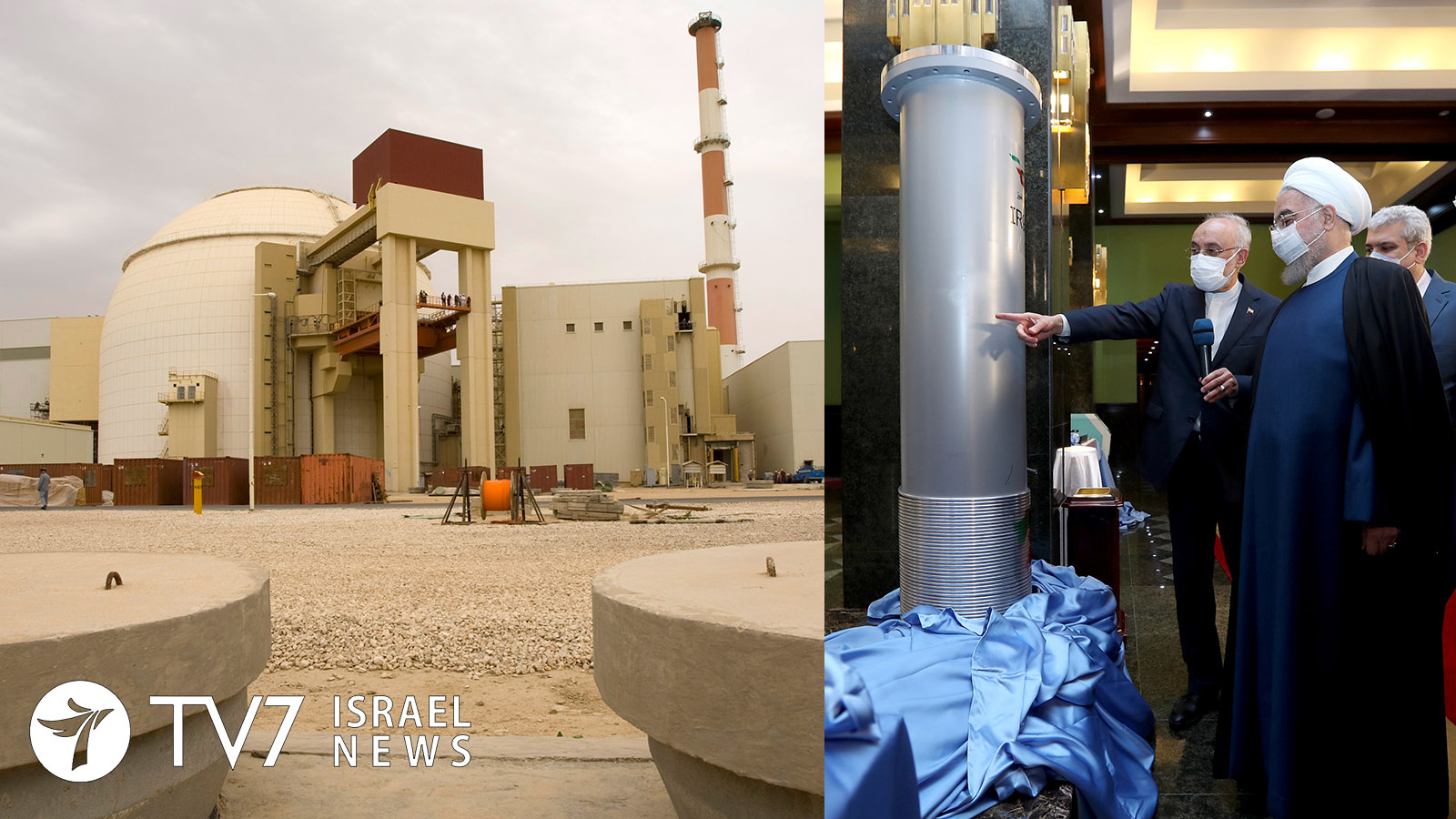Iranian state media is reporting that the Islamic Republic has produced 6.5 kg (14 lb) of uranium enriched to up to 60%.
This, according to Iranian government spokesman Ali Rabiei, who went on to refer to the passage of a law last year by Iran’s hardline parliament obliging the Ayatollah regime to harden its nuclear stance.
“Under parliament’s law…, the Atomic Energy Organization was supposed to produce 120 kg of 20% enriched uranium in a year. According to the latest report, we now have produced 108 kg of 20% uranium in the past five months,” he revealed, indicating an even more rapid output than the rate required by the Iranian law that created the process.
A quarterly report on Iran’s nuclear activities issued last month by the International Atomic Energy Agency (IAEA) said that as of 22 May, Tehran had produced 62.8 kg of uranium enriched up to 20%, and 2.4 kg of uranium enriched up to 60%, with the next level down being enriched to between 2% and 5%.
Iran had defiantly declared on 14 April that it would begin enriching uranium to 60% purity and activate 1,000 advanced centrifuge machines at the Natanz facility where an explosion 3 days earlier was blamed on sabotage by arch-foe Israel.
“Apparently it is the crime of the Zionists, and if the Zionists act against our nation, we will answer it,” said Iranian President Hassan Rouhani declared during a televised cabinet meeting, clearly stating that “Our response to their malice is replacing the damaged centrifuges with more advanced ones and ramping up the enrichment to 60% at the Natanz facility.”
Iran’s Atomic Energy Organization (AEOI) Spokesman Behrouz Kamalvandi was quoted by the semi-official Fars news agency as saying that immediately after decision that “practical preparations for 60% enrichment” were already underway at Natanz.
While a fissile purity of 90% is necessary to produce a nuclear bomb, the gap is not considered difficult to bridge.
Israel, which never issued a formal response to the accusations, is widely suspected of involvement in the Natanz attack as part of an escalating shadow war between the two countries.
The 2015 Joint Comprehensive Plan of Action (JCPOA) nuclear accord capped the level of purity to which Iran can enrich uranium hexafluoride for centrifuges at 3.67%.
In a significant step towards weapons-grade, the Ayatollah regime had previously increased enrichment to 20% purity in January 2020.
Jerusalem has long rejected Tehran’s assertion that it is not pursuing development of nuclear weapons, and views all nuclear activity in the Islamic Republic as an existential threat.
Iran’s latest violation of the JCPOA comes amid its indirect talks in Vienna to revive the deal, that had been fiercely opposed by Israel and abandoned 3 years ago by former United States President Donald Trump.
Iran and the global powers have been holding what they described as “constructive” talks to salvage the accord, which unravelled as Tehran consistently breached its limits on uranium enrichment since being hit by re-imposed harsh US sanctions.
The administration of US President Joe Biden wants to restore the pact’s nuclear limits and, if possible, extend them; which is in accordance with Israel’s insistence that any new deal must encompass a wider scope and greater enforcement.
Washington maintains that Jerusalem has received advance notification of any prospective dialogue with Iran; while Israeli officials suggest they have secured a behind-the-scenes conversation with the Biden White House in which their concerns are being heard.
While the US maintains it will only return to the JCPOA after Iran’s resumption of compliance with its terms, the Ayatollah regime has declared it will only adhere to nuclear curbs after sanctions re-imposed by Trump have been nullified.
Since early April, the remaining parties to the deal – Iran, Russia, China, Germany, the United Kingdom, France and the European Union- have been holding negotiations in the basement of a luxury hotel in Vienna. Due to Tehran’s refusal to hold face-to-face meetings with the US, Washington’s delegation is based at another hotel across the street.
